CDC Says Coronavirus Airborne, What Parents Can Do to Help Schools
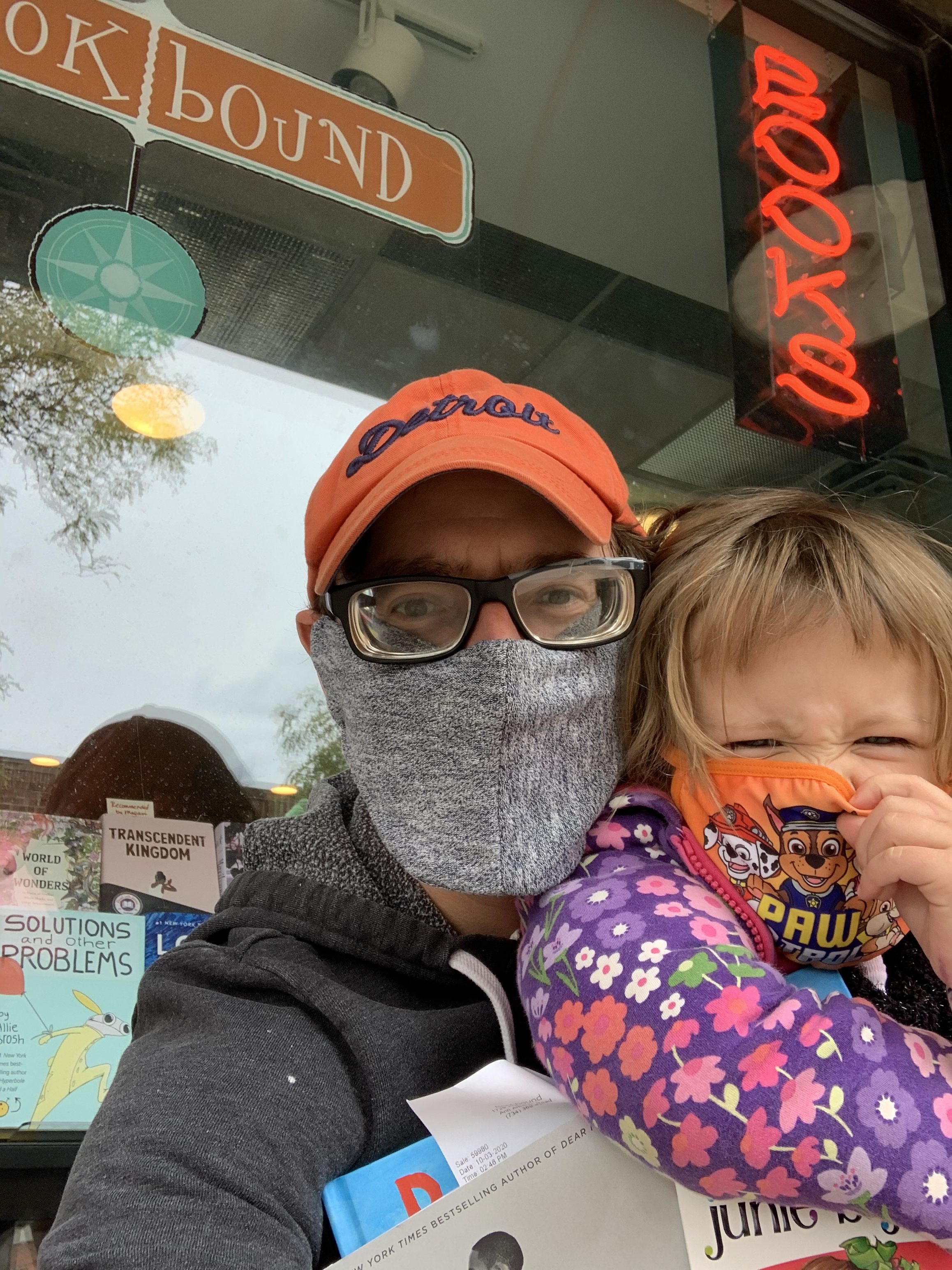
PARENTS: IMPORTANT READ IF YOUR CHILD GOES BACK TO SCHOOL FROM A PARENT/TEACHER’S EXPERIENCES
I’m glad the CDC has acknowledged what parents and teachers already have known for months: Coronavirus spreads in the air.
As a parent, I’m calling all of you parents to be vocal about safety for your children. Many schools will be returning in October or November, joining me, as a teacher, in what I’ve been doing for five weeks.
I’m sharing this list of tips as a parent of two kids. When I’m thinking about the safety of my child, I’m advocating for their needs, if and when we return.
Do you want your kids safe in schools? Here’s a list of things WE AS PARENTS CAN DO:
According to Harvard research, 90% of school buildings were not meeting air quality expectations before the pandemic.
* * * There must be upgraded filters in the HVAC or air purifiers in the rooms to actually say that we have done everything we can to ensure safety for staff and students. * * *
And we must do this before the weather gets so cold, and flu symptoms complicate classrooms.
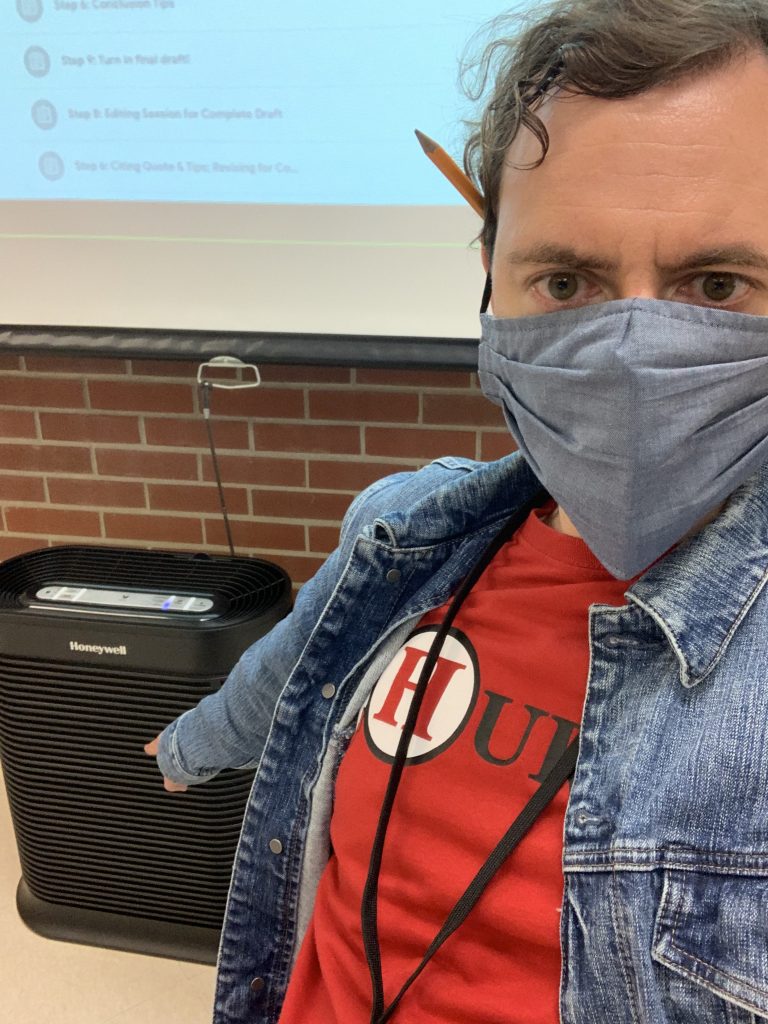 The CDC just acknowledged this is an AIRBORNE pandemic. The truth is there is an incongruence of requirements in the classroom, which isn’t school leaders’ fault.
The CDC just acknowledged this is an AIRBORNE pandemic. The truth is there is an incongruence of requirements in the classroom, which isn’t school leaders’ fault.
But here it is, none the less:
15 minutes or more of exposure in a classroom that can only ensure three feet distance means one positive Covid case in the room causes most people in that room to be quarantined for two weeks.
The rules required to run class are different than the effects of contract tracing after there is a positive case.
2. Review correct mask wearing with your child. If noses are out, aerosols are out, too, in the air.
3. Review social distancing rules in the halls with your young adult. They will naturally get lax. We are in this together. Do not shame kids. They are doing the best they can, and they turn to us for guidance, reminders, and confidence building.
4. Don’t send your children to school sick. Have a plan of someone who can watch them this year.
Teachers can’t treat school curriculum like they would in a normal day, but we have never tested out our online lessons before. We are creating this in real time, like jazz musicians.
If teachers are stressed finding the time and energy to “grade” the work, then they must also recognize students are stressed trying to complete homework during a pandemic.
But kids don’t tell their teachers when they are stressed unless asked. Parents, we must help students and teachers have this conversation.
Guide the child to email the teacher when they are confused and need extra time. Make a schedule with them. Teach them to use task lists to prioritize.
7. Advocate for your child’s late work (in reasonable amount of time) to be graded for full credit.
Students can’t expect to turn in week one work during week five, but they must know we are supporting them in their education, not playing a game.
There is a 75% chance your young adult, your high schooler, isn’t getting enough sleep. They weren’t before the pandemic, and us adults are struggling to get enough sleep during the pandemic, too. Lack of sleep increases stress and anxiety; it affects memory.
In conclusion, remind your kids, weekly, this is not normal. Remind them that they are doing their best, and we are proud of them. Remind them that their teachers are doing their best, and we are proud of them. Remind them that support staff and administrators are completing a Herculean task, and we are appreciative of their countless hours of work.
Remind your children and young adults that all of us are experiencing the pandemic at the same time.
We can do this. My school community is revealing that we can do this. All of us are going to have set backs, but you can too. I believe in us. We can get our kids back in school safely. But this is a group project that all must participate.
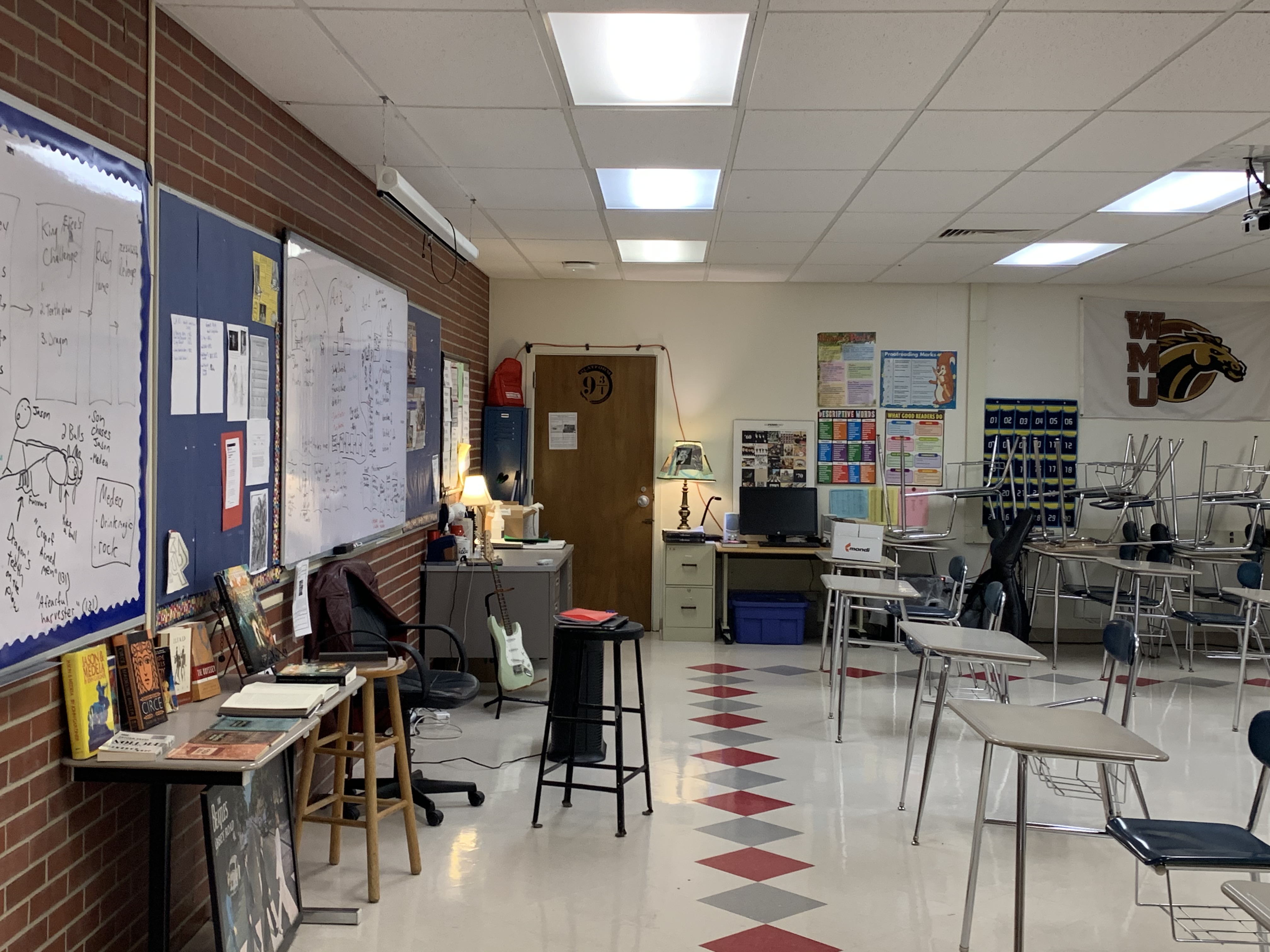
Room D127 exhaled its anxious breathe, after the final bell rang during the 19th day of pandemic teaching.
One would assume I would have rested after my kids were down for the night, but my mind was racing. I had been awake for 18 hours, but I couldn’t sleep. So I commented and graded on my students’ work.
Silly? No. I don’t want to work when my kids want to spend time with me on Saturday and Sunday.
But I can handle the work. It’s the unknowns about health and safety that is wearing me thin.
Consider history: The virus had an invisible seat in the room in 1919, and President Wilson most likely contracted H1N1 during WWI peace negotiations in Paris. Day 19, my Greek myth class discussed the Pandora’s box myth. Even though the story reveals how pestilence came to the world, the last thing to depart from the open chest is hope.
Keep hope alive, friends and family. D127 hopes we can do this right before winter complicates things.
Hope, Superspreaders & Symbolic Names
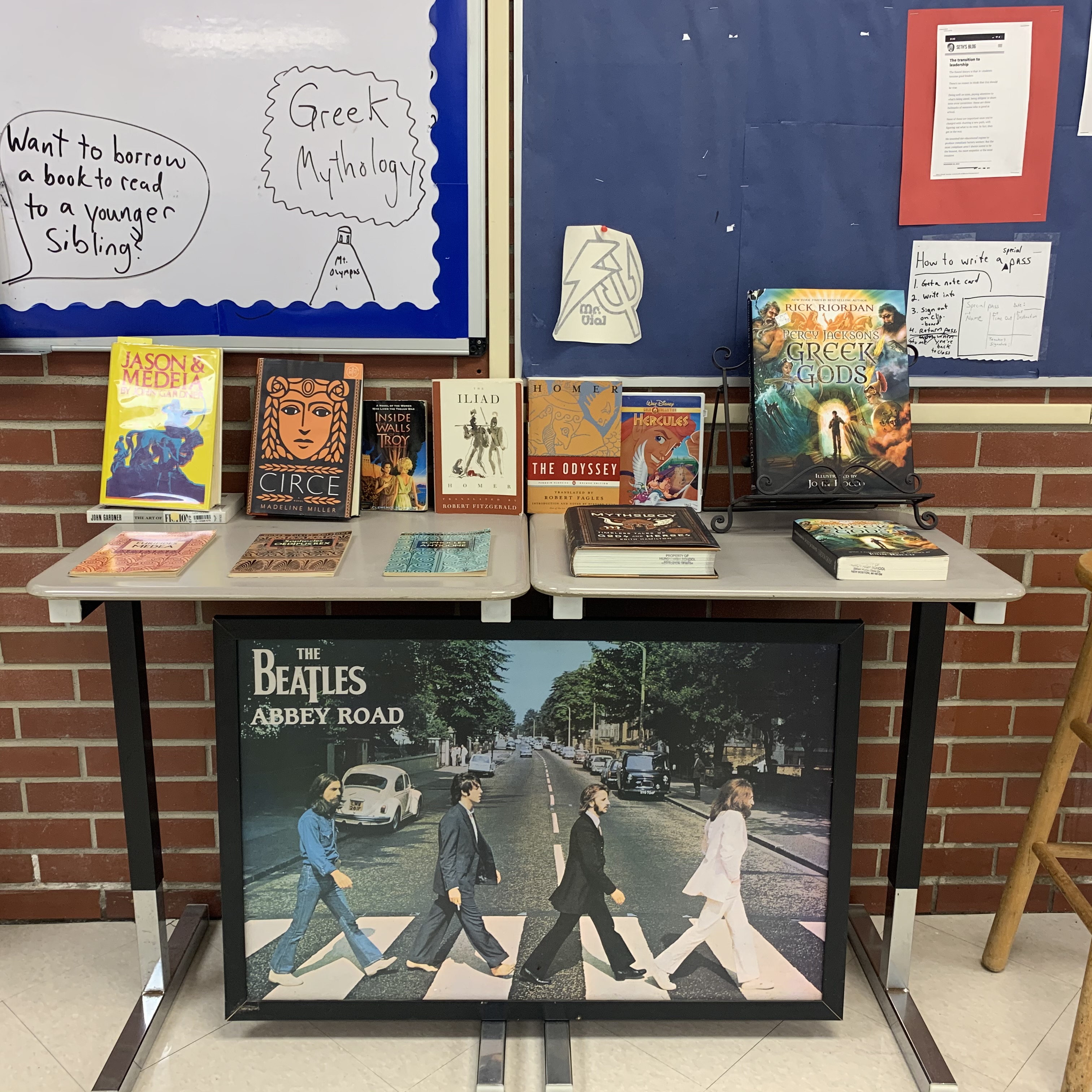
I woke up from a leg cramp at 3:20 AM, and I read the news on my iPhone. I predict I won’t fall back asleep; I also predict the second debate isn’t happening on October 15.
Am I dreaming?
I hope everyone sick recovers, and we now take testing even more seriously. I hope this is a moment where we think of students and teachers preparing for a long winter in windowless classrooms, hoping that no one gets sick when their schools can’t order HEPA filters now that they are backordered.
Hope leads to responsibility and actions.
Note, we are learning how super spreaders play an essential role in Coronavirus’s infection rates. The R0 of this day’s news will follow that trend. I hope I am wrong.
Words Matter: Our Kids, Students & Insomnia during a Pandemic

What is one benefit to being a teacher who is struggling to sleep? I found it: I can relate to my students who share that struggle, and many of are country’s kids can’t rest their minds at night, too.
Yesterday, I had a student tell me they have been awake for 48 hours; and they simply wanted their brain to stop tonight; and focusing on the Crucible was near impossible for them; and they just wanted me to know.
So instead of working on the Crucible study guide, I sent them a little essay and podcast about insomnia.
We really need to recognize what this continual stress is doing to our kids, our young adults, ourselves. Our country is in collapse, but it’s an opaque fall.
We are like Salem in Act one of the Crucible: The adults are in a fiery dispute, ignoring the needs of the children who got them together, conversing in the first place. They fight over theology, authority, power. Who can yell the loudest? The logical elder, Rebecca Nurse, says, “I am too old for this” (Miller 484), and she leaves the parsonage. She will be crucified by the resolution. (Covid-19 is doing that for us; 800-1000+ people die a day.)
And in another comparison to history, we have all seen black and white photographs of breadlines and disparity from the Great Depression of 1929. But can we recognize our own depression, now captured in color?
There is nothing to fear, but fear itself. Ask not what your country can do for you, but what you can do for your country. Tear down this wall…
Words matter, for they are the bricks laid that lead to policy, action, understanding; students yesterday, everywhere, needed WORDS from a teacher that recognized stress or pain, and then those words became policy. (Late work? Fine. Need a new independent assessment? Let’s do it!)
America—you are participating in a group project that democracy assigned you. One person can’t do the entire study guide. We are in this together.
It starts with words. It ends with our children and grandchildren bearing the outcomes of our decisions.
Back to room D127 I go, for day 17. Let’s be better, fellow citizens, who share this great, flawed nation. We really can be. We’ve done it before.
PS: A Greek Mythology class statistic: 92% work completion on first essay, turned in by the deadline. If they can do it, we can do it, too. Go find your own antecedent to “it”.
The Pandemic Has Made Us All First Year Teachers Again
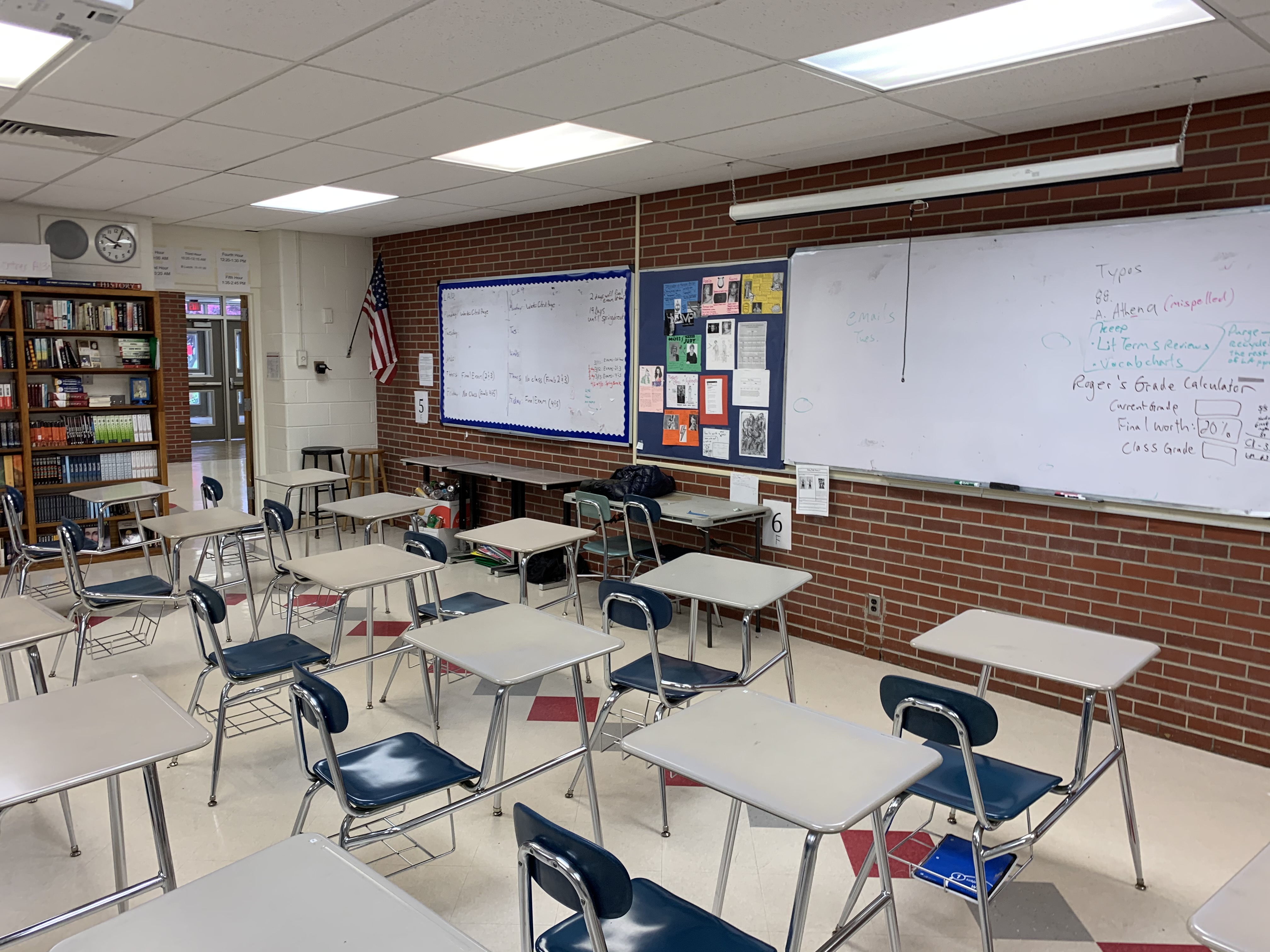
Like many have said, all teachers will feel like first year teachers again soon.
In previous years, I would be buying extra supplies–with my own money –o make my classroom operate: pencils, Kleenex, art materials, used novels etc…This year, I had to buy my own air purifier for my windowless classroom.
I’m really finding it difficult to accept that, but we live with the world as it is, not how it should be.
My first meeting is in eight days, my students’ first day is Aug 31. I still don’t know what classes I’m teaching.
I don’t know if we are the iceberg or the Titanic. All I can do is create a little lifeboat, so I can help my students reflect on life and literature during a historic pandemic and still explore news, memoir, poems, songs, fiction and art.
* * * Bright Spots * * *
There may be no light at the end of the tunnel yet, but there are a few bright spots for teachers this year: We have the opportunity to recreate a fairer, more equitable classroom for the future now and tomorrow.
The pandemic has exposed every shadow of unfairness in society, that we subconsciously knew was there.
We can and must recreate a better education from scratch after this, and maybe even now, while wearing our masks, as long as those changes don’t make students’ more anxious.
This fall, all of our teaching must empower students; all of our lessons must begin with empathy.
- Should we expect perfection of rote memorization when anxiety ruins sleep and affects short term memory? If you also feel like you are forgetting where you put your stuff, picture learning 100 vocabulary words soon.
- This is the time to go grade-less as much as possible. We can’t grade an essay fairly with 92% vs a 94%, and during a pandemic, this seems unimportant, since we are watching our own learning curve change with social distancing, mask wearing, recognizing contact vs. respiratory spread.If epidemiology is allowed to revise their learning, why can’t our students? The learning is in the process, and we must guide our students through it.
- Project-based learning can be our best route, but we must remember we must teach the skills of the project, and even value that more than the final outcome. My first years teaching, I would assign projects, but assume students would simply know what to do. During the pandemic, we’ve been participating in one giant group project, and wow has the process been important.
- Classic literature really can take the backseat now. How can I expect my students to care about Romeo and Juliet when they are worried about the present and reminded about it on social media daily? Shakespeare is difficult enough to teach when I have all of my tools: group work, costumes, improv, feud scenes! None of this will be allowed, so why make my students suffer through it for six weeks at their desks? No, this is the opportunity for us to modernize our curriculum.
- Late work–yes, we should letting students have second chances and turn work in past deadlines. For real. Look at how we don’t even know our full plans for our return to school!
- However, we also need to create a system that is fair and not random. The goal is for students to take ownership of their process, and reflect on it.
We are composing the history that will be retold, analyzed, and criticized in books read 100 years from now. As teachers, this can be our time to rewrite the view of our classroom.
* * *
I hope everyone is doing OK. I miss my musical friends so much. If at all possible, please put schools before large parties, bars, and higher risk activities.
Teachers and kids need the best shot we can get, especially those of us going mask-to-mask (face-to-face) soon.
